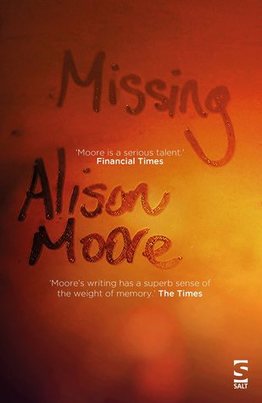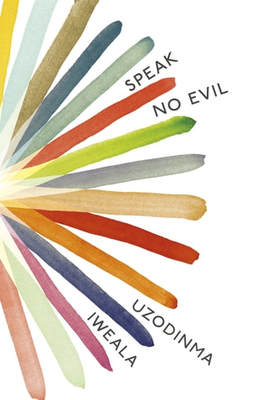Missing by Alison Moore
When he walked out about a year ago, her husband left her a note in steam on the bathroom mirror, a cat, and a beagle called The Four Horsemen of the Apocalypse. Her son from her first marriage left home years ago and Jessie has no idea where he is. This estrangement might be the reason her neighbour tries to forbid Jessie from speaking to her son.
Living and working alone apart from the pets and a ghost that seems to inhabit the spare room, Jessie doesn’t question whether she’s lonely. She follows her routines of cooking and cleaning, walking the dog and breakfasting on five-of-day. She sends her Christmas cards out early and reminisces on playing games with her niece.
Jessie is not without feeling and when Robert – a local man whom she first met at a Halloween party where she came dressed as tuberculosis – shows an interest, she welcomes the attention. Although unsure whether her marriage is actually over, she imagines creating a new family with him.
A plot summary can never do justice to Alison Moore’s fiction. The story’s essence emerges through an accumulation of acutely-observed detail, that’s both quirky and determinedly ordinary (shopping at Morrison’s, drinking her tea from a Silver Jubilee mug). And funny. Reading this on a train, I laughed out loud, both from the text itself and from witnessing my fellow passengers acting out Jessie’s observations (unwrapping sandwiches from silver foil).
The blurb tells us:
This is a novel about communication and miscommunication and lives hanging in the balance, occupying the fine line between life and death, between existing and not existing.
For me, it’s also a refreshingly unsentimental story about how life continues after tragedy, not because those affected are particularly resilient, but because it’s the human condition to carry on. The opening quote from Virginia Woolf’s To the Lighthouse – the novel also echoed in Sue Hubbard’s Rainsongs – is a reminder that what might appear simple on the surface is a tangle of complexity underneath. Which rather sums up Alison Moore’s enthralling fiction.
Like her three other novels – my reflections on which can be found through this 2016 review – Missing is a short novel. This time, perhaps because I still had another fifteen minutes or so before my train pulled into my station, the ending felt a little abrupt. But, on reflection, I admire how the author tells the reader know more than we need to know, and leaves us to decipher the rest.
Thanks to Salt publishing for my review copy. Follow this link for reviews of a couple of other novels on the missing theme.
Speak No Evil by Uzodinma Iweala
Isn’t the coming-of-age and coming-out narrative somewhat passé? Not if the central character’s religion considers homosexuality an abomination. Not if his parents hail from Nigeria where it can spell fourteen years in gaol. Alas poor Niru!
Soon after his father discovers his proclivities, the pair are flying to Lagos and on bumpy roads to the poverty-stricken village where he grew up. Then it’s to a church and a stifling night-time laying on of hands. On returning to the US, the friends drift apart as Niru tries to conform to the stereotype of masculinity his pastor and parents require.
Although Niru does give into temptation by connecting with another gay young man, the narrative ventures into the broader territory of the precarious nature of adolescence when, if the pressures are too great, a sunny child risks becoming an unhappy adult. Then, for the final third of the novel, we switch to Meredith’s point of view for a deeper insight into how it’s not only gay black teenagers – in a city where, despite hosting the residence of the first black president, prejudice endures – who struggle to fit in.
Six years on, and despite the efforts of a therapist, Meredith feels alone in her grief. (Although the therapy is a teeny tiny part of the plot, it’s more successful than many in demonstrating how it works in practice, by contrasting the therapist’s complete focus on her client’s well-being with the “PR crisis specialist” recruited to minimise the damage to her parents’ reputations.)
Uzodinma Iweala’s third novel is a powerful and poignant multi-layered story of promising lives diverted from their projected paths. It’s about misunderstandings, parental expectations, racism and the pain of youth. Despite the sadness of the story, it’s a beautiful read. Thanks to John Murray for my review copy.























 RSS Feed
RSS Feed





















